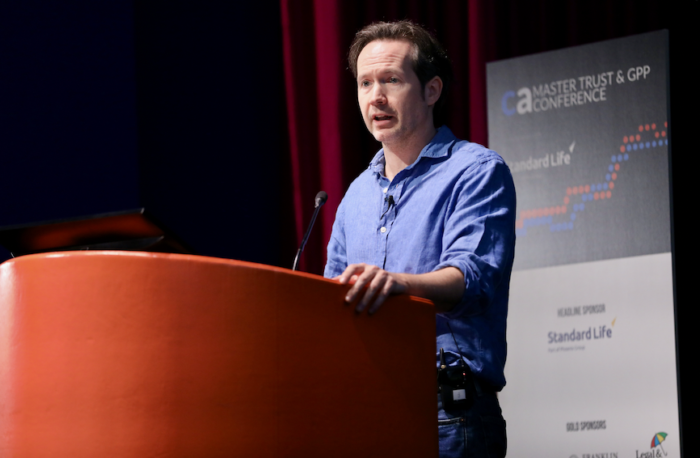Jack Jones, the pensions policy officer at the Trades Union Congress (TUC) has questioned whether the regulation of pension consultants and potentially employers mooted by the government last week is practical
or necessary.
Jones was speaking to delegates at the Corporate Adviser Master Trust and GPP conference in London this week.
He stressed that these were initial thoughts before fully digesting the consultation rather than a fully formed policy position. However, he said: “There are proposals around regulating consultants and potentially employers to try and make sure that those they choose schemes that offer good value for money for their members.
“That seems a bit impractical. It seems a bit unnecessary, if we can get to the system that is envisaged elsewhere in the consultation, where we’ve got a small number of large schemes with essentially a single default at a single price. If you’re in this world, you’re limiting the ability of employers [to make a bad decision], and that’s far more effective than trying to pile loads of regulations on top. It’s the product we need to be regulating.”
Reopening DB – an aspiration
On Defined Benefit and while acknowledging it is a stretch, he suggested that the better funding position and higher gilt yields might convince schemes to reopen DB schemes potentially in return for lower contributions.
DC – a 15 per cent goal for contributions
He said that on DC, where the vast majority of private sector union members were enrolled, the goal was eventual contributions of 15 per cent. Experience around the world showed it can eventually become “sticky
and the norm”.
He pointed to pre-auto-enrolment contributions in the UK which tended to be two thirds from the employer side. That could mean employer contributions of 10 per cent in the AE system.
He added: “We realise that too is a stretch. It’s clear the pensions world is converging on a kind of a 12 per cent figure as a common lobbying point, maybe with a six, six split, with the initial increases falling on employers. If we got to that relatively quickly, that’s a compromise the union movement could live with. I think would be important to recognise that would be a minimum, rather than the [final] goal for contribution rates.”
Concerns about GPP megafund transfers
Considering consolidation in terms of investment, he said: “As far as our members are concerned, there’s a lot of interest in scale. In the DC world being bigger does open up all kinds of interesting avenues to invest in a wide range of assets, and to build up in house function schemes. We back DC pension megafunds. But we have a few caveats, and they mainly focus on governance. It’s important these large funds are really well governed.
“There are some possible red lines and concerns about allowing bulk transfers without consent into GPPs. We don’t think allowing that happen without the kind of the oversight you’ve got in the trust-based world is something that would cause a lot of concern.”
He predicted a bold future for CDC and made an investment case. “Allowing schemes to invest in growth assets for longer and to hold different assets is what generates a really large portion of that expected out performance of CDC.”
Royal Mail members, who he met recently, are enthusiastic about CDC. “We’d love to see that kind of pension scheme rolled out across the country. It’s good that CDC has a large degree of support at the political level. There’s loads of potential here and potential for sector wide schemes in the economy. I’ve mentioned social care and there are other sectors that are particularly suitable, like utilities, like transportation.
He said he would also like to see a CDC Nest. “Promoting CDC, which delivers more pension for every pound, needs to be really important part of the conversation.”
